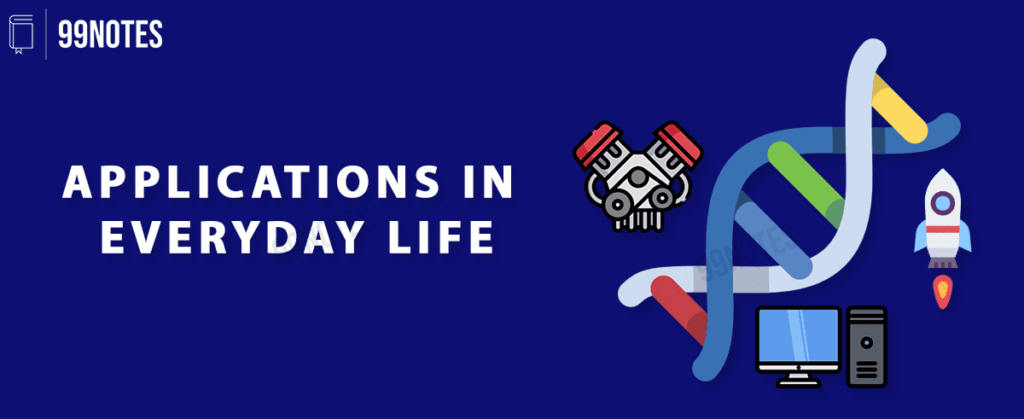
Application in Everyday Life Free UPSC Notes Download
Application in Everyday Life
Science and technology (S&T) is widely acknowledged as a vital instrument for nurturing and enhancing the country’s economic and social growth.
Over the years, India has achieved enormous strides in several areas of science and technology, and can today take pride in its robust network of S&T institutions, skilled workforce, and unique knowledge base.
Given the rapid pace of globalisation, the quick depletion of material resources, the growing competitiveness among states, and the increasing need to safeguard intellectual property, the necessity of developing the knowledge base has grown.
The order of the day is to strengthen application-oriented research and development (R&D) for technology generation; promote human resource development, particularly in terms of encouraging bright students to pursue science as a career; encourage research in and application of S&T for forecasting, prevention, and mitigation of natural hazards; integrate the developments in science and technology with all spheres of national activities; and utilise S&T for enhancing the quality of life.
S&T has a huge impact on economic growth at the macro level and on the competitiveness of businesses at the local level. Globalisation and liberalisation have created enormous opportunities and difficulties for science and technology.
Developments
- Indians, like people in every other region of the world, have a rich tradition of scientific ideas. A drive to comprehend the unknown, along with experimentation and observation, has always fostered a scientific disposition. This has led to the belief that the truth resides in the real world, with all of its richness and complexity.
- Visions are networks of individuals, institutions, and organisations engaged in the research and development process who exchange their views about future technology. They extrapolate the popular perception of the desirability and practicability of the concepts into the near future. Therefore, these visions become adaptable and dynamic objectives that have a significant impact on the direction of innovation processes. They influence the complicated, multi-actor decision-making process over whether to pursue some technical choices and dismiss others in research and development initiatives. Popular visions such as the “information superhighway,“ the “cashless society,” and the “paperless office” derive their strength from the combination of institutions with the experience and knowledge of the individuals involved, fusing in a unique and rather effective manner what is possible with what is desired.
In the current global context, various potent technologies have been developed to support individuals in their homes and workplaces.
Mobile phones and the Internet make quicker communication possible. Automobiles, cellular telephones, computers, networks, and power are just a few of the fields in which new technologies have a significant influence on our everyday life.
In truth, humanity have always been profoundly impacted by technological advancements. However, modern information technology is quite complicated due to cloud computing, new security mechanisms, and data encryption.
It is a well-established truth that new information technology benefits not just programmers, database administrators, hardware engineers, and network analysts, but also the average user. In the 1940s and 1950s, new information technology was created to improve the efficiency of the military and universities.
According to experts, the constant development of new technologies and sciences has simplified human existence. High-tech devices and equipment make it easier to accomplish tasks. It reduces the amount of work performed by humans and expedites the completion of tasks. It makes life comfortable and simple for humans. It also facilitates the organisation of everyday operations. The computer is currently the most beneficial and widely used innovation among all humans. It is accurate since computers make life more pleasurable and allow people to learn and explore new things. Using a computer is an exciting experience. It is used to solve mathematical computations and offers access to all information.
Through science and technology, it is simpler for global citizens to communicate with each other. It is also crucial in the business world due to the fact that transactions and other activities are conducted via computer. Science and technology enable all individuals to enjoy an effortless and contemporary lifestyle. It unlocks the door and allows individuals to enter a fully formed and highly civilised new world.
With the advent of the Internet and the mobile phone, children also benefit. This new technology is novel and unprecedented to the elder generation. New advances in science and technology will have a substantial influence on the world in which people live during their lifetimes and that of their offspring. It is anticipated that scientific discoveries and technical advancements in the field of medicine will be able to cure cancer, HIV/AIDS, and other life-threatening diseases. From clinical trials for drugs to robots for difficult surgery, new medical technology is always being created.
Other Topics Related to Science & Technology:

